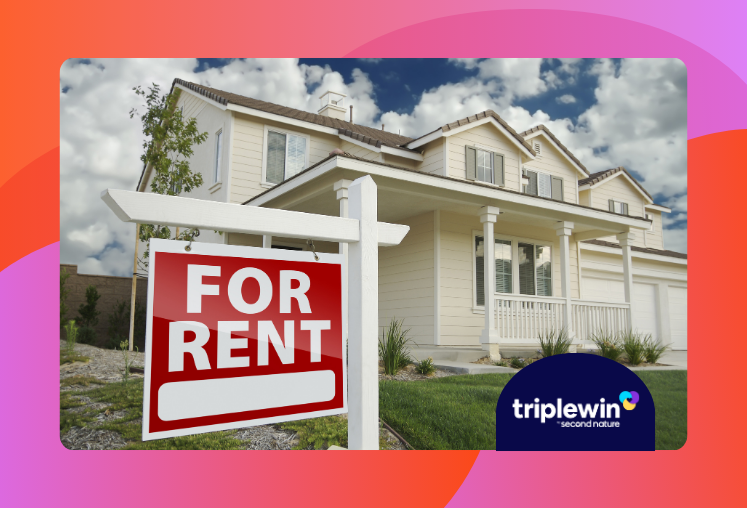What we'll cover
How to market a property management company
1. Get disciplined about content marketing
2. Invest in SEO to build organic traffic
3. Build a content distribution strategy
4. Create an email list
5. Build and execute a social media marketing strategy
6. Invest in online advertising
7. Manage your online reputation
8. Host networking events for brand awareness
9. Build a steady stream of referrals
Final thoughts
Like small business owners everywhere, broker/owners face the constant challenge of marketing their companies. In the era of AI, big data, and digital marketing, it can be tough to keep up with the latest trends and technologies.
Effective property management marketing will leverage today's digital tools, but not at the expense of the human touch that's essential to the industry.
A property management marketing plan should include a clear strategy, multiple channels, and measurable, achievable goals for growing your portfolio. In this article, we'll dive into the process of constructing a strong marketing strategy for your property management company, and cover nine of the top marketing ideas for property management.
We’re joined by Rodney Hays of Geekly Media, a marketing consultancy built for the real estate industry.
How to market a property management company
Marketing is a wide-ranging field, so in order to help you focus your efforts, we've identified nine property management marketing ideas to help you grow your PMC. We know margins can be tight, so we've prioritized tactics that are cost-effective and have high return on investment.
1. Get disciplined about content marketing
Some of the most successful property management leaders have built their go-to-market strategies on content marketing. Content marketing is media creation (think videos, podcasts, articles, social media) designed to inform rather than to persuade.
A good content marketing strategy is designed to meet potential clients where they are, and answer the questions they're asking. This includes platforms like Facebook, LinkedIn, and Google, where investors and potential investors consume real estate investment content.
The goal of content marketing is to provide value to your target audience, giving them useful information and gradually building their trust. Ultimately, good content establishes your company as a subject matter expert.
So, what kind of content is useful in property management marketing? Start by thinking about the kinds of questions your audience is asking. Here’s what Rodney Hays has to say:
“[Real estate investors] are going to ask questions about lease agreements and tenant screening. They’re going to ask questions about evictions, emotional support animals, those types of questions are always going to come up."
For more on content marketing, listen to this episode of the Triple Win Property Management Podcast, where Pablo Gonzalez outlines community building and organic marketing.
2. Invest in SEO to build organic traffic
Search engine optimization (SEO) is the process of optimizing a website for search engines and their users, so that your website ranks highly in search results and increases organic visibility. It helps extend your online presence.
Search engines—most notably Google—are still the first place most people go to find information or answers. Content hosted on your website that addresses the most common questions your target audience is asking can position you well on the search engine results page (SERP), leading to increased website traffic.
So how do you find out what topics to build content around?
SEO tools, such as Semrush and Ahrefs, have an incredible database of keywords and common search terms, along with insights like how much search volume there is, how much competition exists in the rankings, and how often searchers click into various results.
These types of tools can even show you what types of questions searchers typically ask. User questions can be great topic ideas for new content on your website that can drive relevant traffic.
There are countless blogs and agencies that offer best practices for SEO, but when you're just getting started, our biggest piece of advice is this: write genuine content in your own voice. Don't try to trick search engines into ranking your content higher, and definitely don't plagiarize from other websites. Google is smarter than you think, and if they suspect you're trying to game the system, they'll punish your website.
3. Build a content distribution strategy
Once you’ve developed content that speaks to your intended audience, what happens next?
The next step to build a high-quality content distribution strategy. In others words, figure out how to get your messaging in front of your target audience. While a lot of people will find it organically, you should always be doing more to make sure it reaches them.
A distribution strategy involves assessing where your primary audience is on a daily basis. Social media platforms, email, direct mail (aka "snail mail"), podcasts, regional conferences, and local ad listings are all examples of distribution channels.
Start by identifying what pieces of content best match each platform. For example, a longer form piece should be linked via social media with a catchy blurb or graphic to hook your readers. Short form content can be its own social post with no link needed. You can send regular newsletters or other email campaigns to share your content, too.
A few of the best ideas for distributing your content:
- Share on social media: Twitter, Facebook, Instagram, LinkedIn, TikTok
- Link to and reach out to real estate professionals and bloggers
- Ask to share guest posts on sites related to property management or real estate
- Connect with industry podcasters and apply to be a guest on their show
4. Create an email list
Email marketing is one of the most effective ways to reach your target audience and nurture leads. A carefully crafted email can increase sales and your bottom line.
With all that said, it can be tough to get email marketing just right. According to MailChimp, the average open rate for property management emails is just under 20% and the click-through rate is less than 2%. Not great, we know.
That’s why building the right email list can make all the difference. Creating a targeted email list requires a good amount of research, knowledge of your target market, and email marketing tools like Hubspot, ZoomInfo, or Klaviyo.
5. Build and execute a social media marketing strategy
Social media is something of an art and a science. Your social media strategy should include connecting and communicating with important accounts in your area and industry. Think of it like digital networking. The goal is to gradually interact with, build trust with, and provide value to likeminded people.
For every piece of content or event you plan, you need to map out how you will share it on social media.
Rodney Hays of Geekly recommends sharing new content and industry news updates across social channels whenever they’re updated.
“Our customers will put their industry news page out there; they'll pull in like 15 or 16 new articles every month. And then, out of those 15 or 16, we will take eight of those and put a third-party link in it and send those out on social media as well. And I think that's done pretty well in bringing in some different traffic that you know, it's just another resource for the people that might be visiting your page,” says Hays.
6. Invest in online advertising
Paid marketing efforts for property managers are more about visibility and awareness. They’re especially useful in reaching people who may not have heard of your company before, but who are looking for services like yours.
Hays notes that Geekly clients opt for Facebook and LinkedIn for targeted social advertising, because they have the most active property management communities. They also tend to generate the most value for your investment.
“Facebook ads are a great gateway into paid ads, since Google ads typically require a much higher budget to get similar performance. Facebook in the past has had a lower cost per click, so you’re getting higher performance from it for less lift and less spend, which is why I recommend it as a really good starting point.”
Both LinkedIn and Facebook have put significant effort into making advertising aseasy to run as possible. They both include features like geotargeting, which is essential for property managers who operate locally.
“One thing I do love about Facebook ads, like with any other kind of paid ads, is that you can geotarget. Especially with property management and real estate, it makes sense that you’re going to target a specific area because, depending on the scale of your PMC, you probably don’t have properties across the nation."
7. Manage your online reputation
Your online reputation is made up of all the touchpoints anyone could have with your brand online. This includes Facebook, LinkedIn, Instagram, Twitter, Google Reviews, Yelp, and more.
One of the biggest threats to online reputation is reviews. Your marketing plan should include regular maintenance and attention to your online reviews. How are people talking about you online in your comments section, Google Reviews, and Yelp Reviews?
If you see any negative comments that have constructive feedback, make sure you reach out to the person and find out how you can improve or make it right. Respond to the review or comment publicly with a polite and professional tone.
There are also plenty of review management tools, many of which leverage AI to read the tone and sentiment of reviews and generate suggested responses accordingly.
You can’t make everyone happy, but the way you deal with negative feedback goes a long way to protecting your online reputation.
8. Host networking events for brand awareness
Of course, digital isn’t everything. After all, people exist in the real world, too. In-person events and community-building strategies can still be incredibly effective, especially in something as hands-on and personalized as property management.
If you have the resources, hosting events can boost your brand awareness and company reputation in your area. Because property management is so regional—and creating a niche in the market is key to success—these highly targeted events work exceptionally well in the property management industry.
If you're not yet at a point where you can host networking events, look for events hosted by other industry professionals in your area. Grab a ticket, mix and mingle, and get to know those around you.
9. Build a steady stream of referrals
Real estate is a people-first business. That's why many property managers see a large portion of your their doors will coming in from referrals. Real estate investors often have networking events and educational sessions, so they have plenty of opportunities to talk about their property managers, both good and bad.
Welch-Randall, a property management firm based out of Ogden, Utah, attributes 92% of its new doors to referrals. This is the mark of a business with established authority reaping the benefits of the work it put in to create that trust.
Consider establishing a formal referral program, where existing clients can receive a reward or a discount on management fees if they refer a new client to you.
The absolute best way to grow your referral stream is simply by providing the best possible investor experience to your clients. Drive strong financial results, communicate effectively, protect their assets, and even step into the role of asset manager. The happier they are with your services, the more likely they are to recommend you to others.
Final thoughts
Becoming an industry-leading property management company is about more than just the number of doors you manage. There is a saying in marketing that perception equals reality. If you want potential clients to perceive your company as an industry leader, you have to give them a reason to believe that you are.
Real estate investors, especially new ones, above all else, are looking for experts that they can trust to guide them through the ownership of their assets. By answering the questions they have and proving your expertise, you’re proving that you're up to the task.
Want to learn more about how you can build your property management business into a true powerhouse? Download our property management business plan.
Topics:






